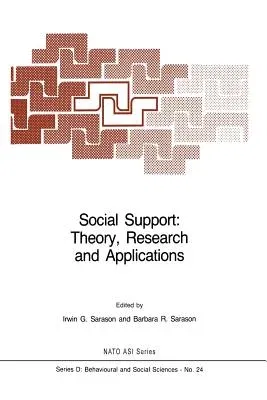"No one is rich enough to do without a neighbor." Traditional Danish
Proverb This bit of Danish folk wisdom expresses an idea underlying much
of the current thinking about social support. While the clinical
literature has for a long time recognized the deleterious effects of
unwholesome social relationships, only more recently has the focus
broadened to include the positive side of social interaction, those
interpersonal ties that are desired, rewarding, and protective. This
book contains theoretical and research contributions by a group of
scholars who are charting this side of the social spectrum. Evidence is
increasing that maladaptive ways of thinking and behaving occur
disproportionately among people with few social supports. Rather than
sapping self-reliance, strong ties with others particularly family
members seem to encourage it. Reliance on others and self-reliance are
not only compatible but complementary to one another. While the
mechanism by which an intimate relationship is protective has yet to be
worked out, the following factors seem to be involved: intimacy, social
integration through shared concerns, reassurance of worth, the
opportunity to be nurtured by others, a sense of reliable alliance, and
guidance. The major advance that is taking place in the literature on
social support is that reliance is being -placed less on anecdotal and
clinical evidence and more on empirical inquiry. The chapters of this
book reflect this important development and identify the frontiers that
are currently being explored.


